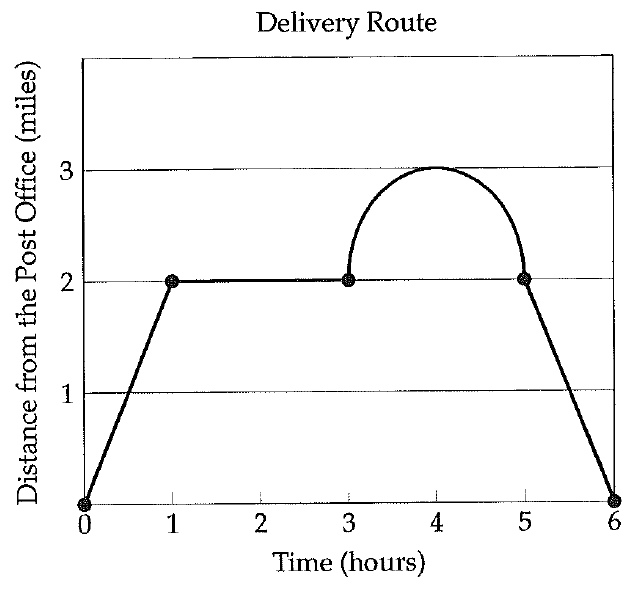PROBLEMS ON PARTIAL DERIVATES IN THREE VARAIABLES
When we find partial derivative of F with respect to x, we treat the y variable as a constant and find derivative with respect to x .
That is, except for the variable with respect to which we find partial derivative, all other variables are treated as constants. That is why we call them as “partial derivative”.
If F has a partial derivative with respect to x at every point of A , then we say that (∂F/∂x) (x, y) exists on A.
Note that in this case (∂F/∂x) (x, y) is again a real-valued function defined on A .
Problem 1 :
If
U(x, y, z) = (x2+y2)/xy + 3z2y
find (∂u/∂x), (∂u/∂y) and (∂u/∂z)
Solution :
U(x, y, z) = (x2+y2)/xy + 3z2y
Using quotient rule, we get
Differentiate with respect to x, so keep y and z as constants.
∂u/∂x = [xy(2x)-(x2+y2)y]/(xy)2 + 0
∂u/∂x = [2x2y-x2y+y3]/(xy)2
∂u/∂x = (x2y+y3)/(xy)2
∂u/∂x = (x2+y2)/(x2y)
Differentiate with respect to y, so keep x and z as constants.
∂u/∂y = [xy(2y)-(x2+y2)x]/(xy)2+3z2(1)
∂u/∂y = [2xy2-x3-xy2]/(xy)2+3z2
∂u/∂y = (xy2-x3)/(xy)2+3z2
∂u/∂y = (y2-x2)/(xy2)+3z2
Differentiate with respect to z, so keep x and y as constants.
∂u/∂z = 0+3(2z)y
∂u/∂z = 6zy
Problem 2 :
If U(x, y, z) = log (x3+y3+z3), find
(∂u/∂x) + (∂u/∂y) + (∂u/∂z)
Solution :
U(x, y, z) = log (x3+y3+z3)
Finding ∂u/∂x :
Differentiate with respect to x. Treat y and z as constant.
∂u/∂x = [1/(x3+y3+z3)] (3x2)
∂u/∂x = [3x2/(x3+y3+z3)] ------(1)
∂u/∂y = [1/(x3+y3+z3)] (3y2)
∂u/∂y = [3y2/(x3+y3+z3)] ------(2)
∂u/∂z = [1/(x3+y3+z3)] (3z2)
∂u/∂y = [3z2/(x3+y3+z3)] ------(3)
(1) + (2) + (3)
(∂u/∂x) + (∂u/∂y) + (∂u/∂z)
= [3x2/(x3+y3+z3)] + [3y2/(x3+y3+z3)] + [3z2/(x3+y3+z3)]
= 3(x2+y2+z2)/(x3+y3+z3)
Problem 3 :
For each of the following functions find gxy, gxx, gyy,and gyx.
(i) g(x, y) = xey+3x2y
Solution :
Finding gx :
Differentiating respect to x.
gx = ey+3(2x)y
gx = ey+6xy
Finding gy :
Differentiating respect to y.
gy = xey+3x2(1)
gy = xey+3x2
(i) Finding gxy :
gxy = ey+6x(1)
gxy = ey+6x
(ii) Finding gxx :
Differentiating respect to x.
gx = ey+6xy
gxx = 0+6(1)y
gxx = 6y
(iii) Finding gyy :
gy = xey+3x2
gyy = xey+0
gyy = xey
(iv) Finding gyx :
gy = xey+3x2
gyx = (1)ey+3(2x)
gyx = ey + 6x
(ii) g(x, y) = log(5x+3y)
Solution :
Finding gx :
gx = [1/(5x+3y)] (5)
gx = 5/(5x+3y)
Finding gy :
gy = [1/(5x+3y)] (3)
gy = 3/(5x+3y)
(i) Finding gxy :
From gx = 5/(5x+3y)
Differentiate with respect to y.
gxy = [-5/(5x+3y)2](3)
gxy = [-15/(5x+3y)2]
(ii) Finding gxx :
From gx = 5/(5x+3y)
Differentiating respect to x.
gxx = [-5/(5x+3y)2](5)
gxx = [-25/(5x+3y)2]
(iii) Finding gyy :
From gy = 3/(5x+3y)
Differentiating respect to y.
gyy = -9/(5x+3y)2
(iv) Finding gyx :
From gy = 3/(5x+3y)
Differentiating respect to x.
gyx = -15/(5x+3y)2
(iii) g(x, y) = x2+3xy-7y+cos(5x)
Solution :
Finding gx :
gx = 2x+3y-0-sinx(5x)(5)
gx = 2x+3y-5sinx(5x)
Finding gy :
gy = 0+3x(1)-7+0
gy = 3x-7
(i) Finding gxy :
From gx = 2x+3y-5sinx(5x)
Differentiate with respect to y.
gxy = 0+3+0
gxy = 3
(ii) Finding gxx :
From gx = 2x+3y-5sinx(5x)
Differentiate with respect to x.
gxx = 2+0-5cos(5x)(5)
gxx = 2-25cos(5x)
(iii) Finding gyy :
From gy = 3x-7
Differentiate with respect to y.
gyy = 0
(iv) Finding gyx :
From gy = 3x-7
Differentiate with respect to x.
gyy = 3

Apart from the stuff given above, if you need any other stuff in math, please use our google custom search here.
Kindly mail your feedback to v4formath@gmail.com
We always appreciate your feedback.
©All rights reserved. onlinemath4all.com
Recent Articles
-
AP Calculus AB Problems with Solutions (Part - 8)
Jan 30, 25 09:48 AM
AP Calculus AB Problems with Solutions (Part - 8) -
SAT Math Resources (Videos, Concepts, Worksheets and More)
Jan 29, 25 06:00 AM
SAT Math Resources (Videos, Concepts, Worksheets and More) -
Digital SAT Math Problems and Solutions (Part - 105)
Jan 29, 25 05:52 AM
Digital SAT Math Problems and Solutions (Part - 105)
